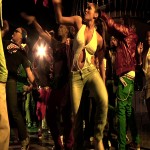By Kevin Jackson—


Dancehall music is facing heat in the United Kingdom. Authorities there associate the genre with violence, which has caused several nightclub owners to ban it from their venues.
Rhoan ‘DJ Face’ Woolery, originally from Montego Bay, is a popular disc jockey from Stafford in East London. He confirmed the ban in an interview with Splash.
“Now promoters can’t even get a club. Once you say the word ‘bashment’ you won’t get the club. Promoters of most bashment raves are now underground and the events are being held at secret locations,” he said.
In early January, the tabloid Daily Star reported an incident which took place in Westminster, West London. The article stated that a Jamaican dancehall boat party on the River Thames descended into chaos when a reveler was stabbed. The incident was also carried in the rival Daily Mail.
In a story aired by the BBC one year ago, the owner of a London nightclub said he was ordered to stop playing dancehall music.

Roy Seda, owner of the Dice Bar in Croydon, claimed he had been told that Jamaican music is “unacceptable” by the Metropolitan Police. He said he came under so much pressure that he now requires disc jockeys to sign contracts not to play the genre.
The report also cited police reports that the club’s licence was under review, saying it is associated with crime and disorder.
“We had a flyer which said R&B, garage, house, bashment and hip-hop and I was advised to remove the word ‘bashment’ because chart and commercial music is considered safer,” Seda told the BBC. DJ Face believes the ban will be far-reaching.
“A ban on dancehall music in clubs will definitely affect the growth of the music on the UK scene. The artistes will get less concerts and reggae and dancehall disc jockeys will also get less work. The music will just become underground,” he said.
TJ “Stylah” Blackwood, another club DJ, has also experienced the police clampdown. Originally from Constant Spring, he now lives in London.

“I have played at clubs in Croydon and Central London and there have been signs on the wall saying “NO BASHMENT”. Immediately my heart sunk. Dancehall is my passion, I even named my sound (system) Dancehall Syndicate, in the hope of showing people a movement that can highlight dancehall in a positive and influential way,” he said. “A member of my sound has even decided to leave the dancehall scene as he hates the way it is heading; he now plays in the commercial, alternative pop scene. He no longer collects dancehall music and it’s a huge shame.”
Blackwood is not daunted, however.
“I will never give up on dancehall. When I enter these clubs, I will play alternative and the patrons (mainly white people) will beg me to play Sean Paul, Shaggy, Bob Marley, Beres Hammond and even Vybz Kartel and Popcaan.”
Since the dancehall ban, TJ has noticed a significant decline in patronage at some venues.
“Clubs are seeing a decrease in patrons where no dancehall is allowed. Club owners think dancehall is all killing and shooting, but I have played hours of dancehall and party and love songs and it’s absolutely fine,” he said.


You must log in to post a comment.